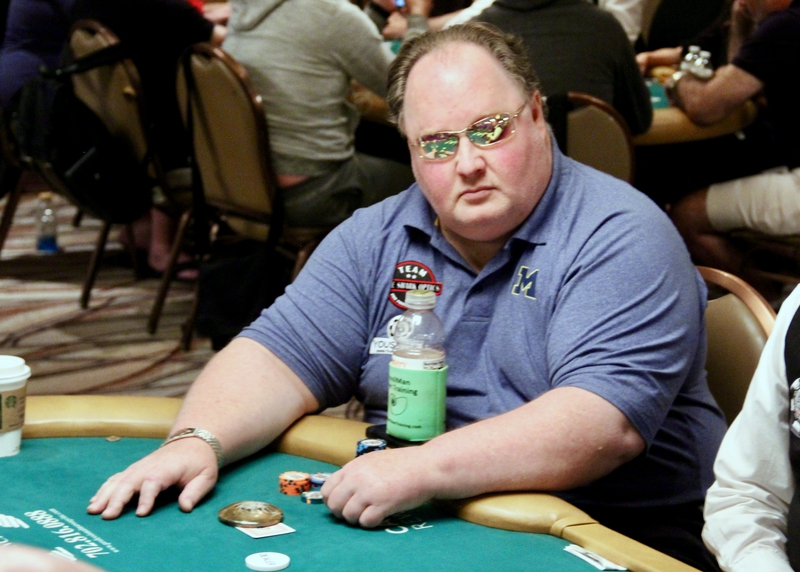
Card Player Magazine, available in print and online, covers poker strategy, poker news, online and casino poker, and poker legislation. Sign up today for a digital subscription to access more than 800 magazine issues and get 26 new issues per year!
Please let me encourage you to reach out to me with article ideas and questions for future columns. You can tweet to me at @FossilMan, or send me a message at info@fossilmanpoker.com.
I hope you enjoyed my first column on cognitive biases on the Self-Serving Bias, the follow up on the Curse Of Knowledge, and then the Anchoring Bias.
Let’s dig into a bias that you’ve likely already heard about, the Confirmation Bias. This is our tendency to find or notice, and to selectively remember information that confirms our preexisting beliefs.
If you already believe a politician is stupid, you are more likely to notice their mistakes and gaffes, and more likely to remember those mistakes when you think about them. If you think they’re brilliant, you are less likely to notice and remember their mistakes. As such, your opinion, that might have been formed early on before you had sufficient evidence, is only reinforced and cemented by your misperceptions and inaccurate recall of subsequent events.
In poker terms, you might form an early opinion about an opponent, and then maintain that opinion despite later evidence to the contrary. If somebody raised the first five hands at the table, you might form an opinion that they are loose and aggressive. After that early opinion is formed, you might not notice how much they are folding over the next several hours, and still think of them as a loose player.
Clearly this kind of mistake is likely to cause you to play poorly against them. If you are going to try to adjust your basic strategy based upon your opponent (so-called GTO play, see chapter 4 of my book FossilMan’s Winning Tournament Strategies), you must have an accurate line on that opponent. Otherwise, your adjustments will be incorrect, and cost you a lot of equity.
This bias also impacts us with respect to intelligent strategy in general. If you have missed a bunch of flush draws, it will cause you to believe that you don’t hit flush draws as often as you should. And that might lead you to playing those draws incorrectly, based upon this flawed belief.
This is part of why it was so hard for players to develop good strategies prior to computer analysis. It’s one thing to calculate how often you should make a flush with two cards to come in hold’em. It’s quite another to determine if it is more profitable to flat-call a raise when in position with A-K, or if it is better to three-bet. There are so many confounding variables that relying upon your memory, and recalling how well you did with each play over thousands of trials, spread out over months and years, is next to impossible. Now, add to that your confirmation bias that you felt one strategy was superior before you had the data, and it is unlikely you will learn if your original opinion is wrong.
Which leads to a related effect, Selective Memory. Selective Memory is strongly related to Confirmation Bias. Selective Memory is the tendency to more vividly recall events that support an idea, value, or opinion, while simultaneously being less likely to remember events that contradict them.
If you have tried playing A-K by just calling, and other times by reraising, you will probably have Selective Memory regarding the results. Confirmation Bias just exacerbates this effect. If you go into it expecting the more passive line to achieve better results, you are more likely to selectively remember the times the passive line worked, and selectively forget the times the passive line didn’t work out so well. If you were expecting the more aggressive line to be better, selective memory will probably cause you to believe it was better, regardless of the reality of what happened.
Confirmation Bias and Selective Memory run contrary to a well understood concept. That is, in order to accurately find the truth, you must be honest with yourself, and about yourself. We all struggle with this, both in poker, and every other aspect of our lives. It is always hard to be honest about yourself. We all have flaws, most of us have many flaws, and some of them are quite serious. It is painful to face up to those flaws. But if we can’t acknowledge our flaws, we can’t fix them.
The same is true for our poker game. If we can’t notice and acknowledge the flaws in our game, the mistakes we all make, then we don’t even know they need fixing. That is partially why these biases exist. Like many other biases, they protect our ego from reality. In the short term, they make us feel better about ourselves. But, in the long run, wouldn’t you rather win more money?
If you said yes, then you must learn to overcome all these biases. Only then can you truly know yourself, figure out what you could be doing better, and become the greatest player you can possibly be. It isn’t easy to do, but if you do it, it will have been worth all the effort and pain it took to get there.
Have fun, and play smart! ♠
Greg Raymer is the 2004 World Series of Poker main event champion, winner of numerous major titles, and has more than $7 million in earnings. He is the author of FossilMan’s Winning Tournament Strategies, available from D&B Publishing, Amazon, and other retailers. He is sponsored by Blue Shark Optics, YouStake, and ShareMyPair. To contact Greg please tweet @FossilMan or visit his website.
